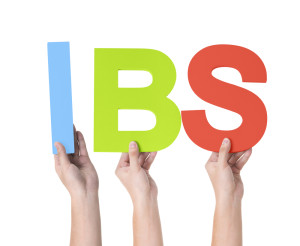Written by Marcia J. Egles, MD. Saccharomyces cerevisisiae, commonly known as Baker’s yeast, significantly improved symptoms of constipation in a subgroup of patients suffering from irritable bowel syndrome.
 A clinical trial of patients with irritable bowel syndrome (IBS) found that a Saccharomyces yeast probiotic may be useful in improving symptoms in a subset of patients. Only in the IBS-C type patient, that is, those with constipation as a predominant symptom, was a benefit demonstrated. Those with the IBS-D type (diarrhea predominate) or mixed types of IBS showed no reduction in symptoms with the addition of the yeast to their diets in this 12-week study.
A clinical trial of patients with irritable bowel syndrome (IBS) found that a Saccharomyces yeast probiotic may be useful in improving symptoms in a subset of patients. Only in the IBS-C type patient, that is, those with constipation as a predominant symptom, was a benefit demonstrated. Those with the IBS-D type (diarrhea predominate) or mixed types of IBS showed no reduction in symptoms with the addition of the yeast to their diets in this 12-week study.
Irritable bowel syndrome is a common gastrointestinal disorder characterized by recurrent abdominal pain not attributable to some other specific disease. A beneficial role of some dietary probiotics in IBS has been suggested by several studies 1, 2, 3, but which species may be beneficial to which patients, and the mechanisms by which such possible benefits are achieved, remains complex and unclear (2, 3, 4). Probiotics are non-pathogenic (non-disease causing) bacteria and yeast that might provide health benefits when consumed.
The sole probiotic used in this study is a baker’s yeast, Saccharomyces cerevisisiae. This yeast secretes saccharolytic enzymes that may assist the intestine in generating short-chain fatty acids and alcohols which are known to stimulate intestinal motility 4. This prokinetic effect may be beneficial to patients with constipation.
In this study from Nantes, France 379 irritable bowel patients aged 18 to 75 years were recruited by general practitioner physicians. IBS was diagnosed according to Rome III criteria. IBS-C patients were 47% of the study group. The patients were divided into two groups for a twelve-week double-blind study. The treatment group received daily 1000 milligram capsules of Saccharomyces cerevisiae CNCM I-3856 with 8,000,000,000 colonies forming units per gram. The placebo group received calcium phosphate maltodextrin capsules. The patients’ symptoms over the twelve weeks were scored by the patients in a daily diary. The capsules were consumed orally with water at breakfast.
The study found no significant differences in symptom response between the two groups overall by the end of the study. However, when the data was examined for the IBS-C subgroup, (the IBS patients with a predominance of constipation), the saccharomyces treated patients showed significant (p less than 0.03) improvements in symptoms as compared to the control IBS-C subgroup. For example, the composite symptom score at baseline in the IBS-C treatment subgroup was 10.7 and dropped to 7.3 at the end of 12 weeks. By comparison, the IBS-C placebo subgroup’s symptom score was 10.9 at baseline and was 8.6 at the end of the study. No serious adverse effects were reported.
The researchers hope to investigate further the mechanisms by which probiotics affect intestinal function, and hope to target specific therapies to specific patients.
Source: Spiller R., Pe´lerin F, Decherf A. C. et al. Randomized double blind placebo-controlled trial of Saccharomyces cerevisiae CNCM I-3856 in irritable bowel syndrome: improvement in abdominal pain and bloating in those with predominant constipation. United European Gastroenterology Journal 2016, Vol. 4(3) 353–362; DOI: 10.1177/2050640615602571
© Author(s) 2015 Reprints and permissions: sagepub.co.uk/journalsPermissions.nav
Click here to read the full text study.
Posted February 16, 2017.
References:
- Whelan K. Probiotics and prebiotics in the management of irritable bowel syndrome: a review of recent clinical trials and systematic reviews. Current Opinion in Clinical Nutrition & Metabolic Care. 2011;14(6):581-587.
- Moayyedi P, Ford AC, Talley NJ, et al. The efficacy of probiotics in the treatment of irritable bowel syndrome: a systematic review. Gut. 2010;59(3):325-332.
- Ortiz-Lucas M, Tobias A, Saz P, Sebastian JJ. Effect of probiotic species on irritable bowel syndrome symptoms: A bring up to date meta-analysis. 2013.
- Kamath PS, Phillips S, Zinsmeister AR. Short-chain fatty acids stimulate ileal motility in humans. Gastroenterology. 1988;95(6):1496-1502.
